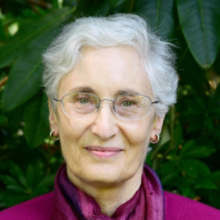This year our department has had a special occasion for self-reflection: a Program Review, as is required of all academic units at UW every ten years. Among other things, the review process calls for a self-study report assessing how we are doing and how we have fared in the past decade. In our deliberations, we are noting multiple significant changes the department has undergone since our last review – including a change of departmental name. Previously we were Near Eastern Languages and Civilization (NELC), and now we are Middle Eastern Languages and Cultures (MELC). This shift aims to make our focus more visible and legible to students and others, as well as to align more closely with our mission, education principles, outreach goals, and scholarship.
We also note that the range of our academic endeavors has expanded impressively; in many ways we have redefined or renewed our departmental profile. Our core curriculum continues to emphasize the study of languages, literatures, and cultures, in keeping with the focus of the department over many years, but we have added new language courses (Ge’ez, a classical Ethiopic language, and Ladino, a Jewish language), new strengths in archaeology and art history, new expertise in Sephardic history and Ottoman studies, a focus on the Horn of Africa, extensive projects in Digital Humanities, and more. We have developed 100- and 200-level general education courses with high enrollments, including two Gateway courses - NEAR E 101, “Gateway to the Near East” and NEAR E 196, “Gateway to Middle Eastern Languages” which have regularly attracted several hundred students each year - and large lecture courses in Hebrew Bible and Ancient Near East. A new seminar for departmental majors, focusing on academic presentation and communication skills, has helped students learn from each other, get to know one another, and become aware of the range of work pursued in MELC. Furthermore, MELC faculty members have taken leadership roles in advancing Humanities Division initiatives in Global Literary Studies and the Translation Hub. Our students continue to acquire knowledge and practical skills that prepare them to succeed in a variety of careers - including academia, diplomacy, technology, and business - and now the fields of study and the career options for those earning a MELC degree have widened.
In this newsletter you can find more information regarding the department name change, new faculty appointments that enrich our programs and curriculum, the retirement of beloved professor of Persian language Shahrzad Shams, Digital Humanities projects, graduate student interests, and efforts to build our sense of community. We note that, in the interest of building community, the department has been holding quarterly Meet and Greet events, so that students in different areas of interest get a chance to come together and meet one another. We thank our alumni Henry Milander, Matt Erickson, and Noah Tashbook for joining in and speaking to current students about the career paths they have followed and telling us about other activities they have pursued since graduating from UW. And, on a weekly basis, we have been hosting MELC and Cookies - an informal, drop-in event - to encourage students to take a break, meet one another, and feel at home in the department.
We also take this opportunity to recognize with appreciation the visiting scholars and instructors who have contributed to activities in MELC this year: Reham Elkhayat and Amina Moujtahid who have taught courses in our Arabic program; Dr. Paula Holmes-Eber who taught Introduction to Islamic Civilization; Naghmeh Samini who has offered a new and unique course on creative writing in Persian; Elham Monfaredi who taught Persian language classes, our Fulbright Language Teaching Assistant in Turkish, Menekşe Pervaz; and MELC Teaching Assistants and Research Assistants Mindy Cohoon, Forrest Martin, Corinna Nichols, Cara Reed-Ferrara, Jack Robinson, Maral Sahebjame, and Brianna Voss. We bid a fond farewell to Patrick Gibbs, the Administrator in our department for the past six years. We are grateful for all the good work he did for us, and we are grateful that he has not moved too far away. Now on the third floor of Denny Hall, he serves as the Administrator for the Anthropology Department and he has continued to offer support to MELC as we welcome our new staff member, Paul Siscel.
FYI: MELC plans to hold its Convocation - honoring students who are completing a major, minor, or MA in our department – on Friday, June 9 at 3:00-5:00 in the afternoon, in the HUB, Room 332. Please save the date!
Watch our website for more announcements, news updates, and an archive of departmental activities. Many thanks to Stephanie Selover, Kathryn Medill, Hadar Khazzam-Horovitz, Melike Yücel-Koç, Rick Aguilar, and Paul Siscel for their work on this newsletter.
Naomi Sokoloff
Professor & Chair, Department of Middle Eastern Languages and Cultures
